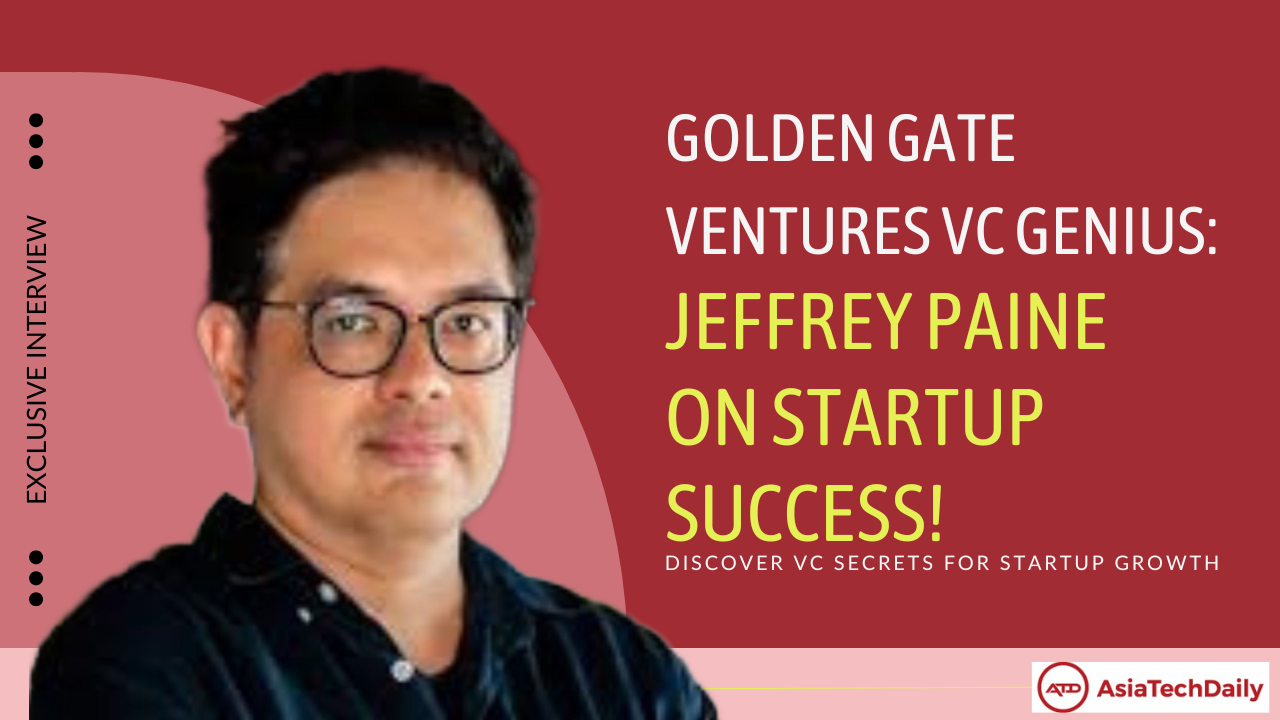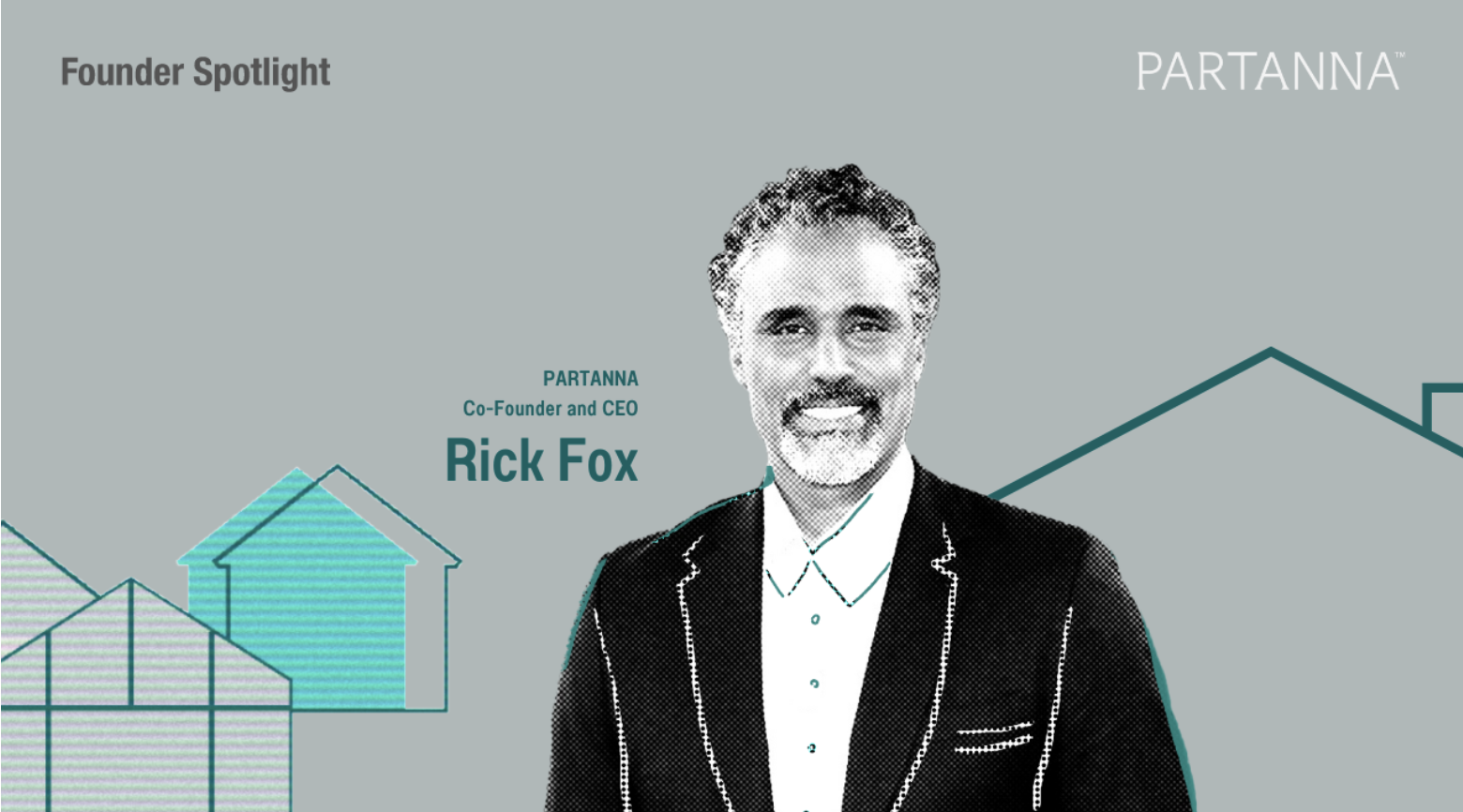AsiaTechDaily – Asia's Leading Tech and Startup Media Platform

How Paul Jozefak, Co-Founder Of Receeve Is Driving Resolutive Dialogue With Customers?
Paul Jozefak is a serial company builder and has been both an entrepreneur as well as a venture capitalist in the past 20 years. With his co-founder, Paul launched Liquid Labs at the beginning of 2012. This incubator for the Otto Group brings together their work experience, allowing them to implement their skillsets while taking advantage of their extensive network. Liquid Labs had successfully launched 16 companies to date with 6 successful exits already realized.
In late 2016 Paul was asked to take charge of Otto Group Digital Solutions (OGDS), the parent company of Liquid Labs. In this position, he built new businesses for the Otto Group but was also responsible for driving innovation for the group as well as managing a broad portfolio of technology companies.
Paul graduated with dual degrees in Finance and German from Rutgers University. At the same time, he was also involved with his first startup in Germany, which was focused on real estate in former Eastern German cities and brought a technology component to what was then a very manual business. It was also this experience that would ultimately lead him to where he is now.
His diversion into employment and having a boss started out at Davis Polk and Wardwell, a leading international law firm. There he was tasked with heading up business development for Europe, which involved acquiring IPO candidates out of the tech startup scene and supporting their path to public listing. Here Paul worked extensively with both investment banks and venture capitalists funding the startups going public.
Along the way, he was asked to be a part of building up SAP Ventures as head of Europe. After a couple of highly successful exits, Paul decided it was time again to be more entrepreneurial.
A Hamburg venture fund was raising capital for their third fund and set themselves the target to internationalize. Paul, with his background and a Slovak and US passport, was well positioned to help fulfill this goal. He was made a partner and helped Neuhaus Partners close Neuhaus Fund III, with initial investments commencing in 2007. Although that fund was invested successfully, Paul parted ways with Neuhaus Partners in 2012 to help the Otto Group become more innovative with the creation of Liquid Labs.
As of 2019, together again with his co-founder at Liquid Labs, Paul launched Receeve GmbH. This is a software company providing a solution for the collections industry, driving resolutive dialogue with customers. The software uses data and AI to optimize communication strategies, channels and content with customers, helping to resolve unpaid bills. The company has raised two rounds of venture capital and is growing the team aggressively in the EU market.
In an exclusive interview with AsiaTechDaily, Paul Jozefak says:
I advise everyone to not wait. You are never too young to start building businesses, and if you even remotely think you are an entrepreneur, then find out as soon as possible whether you have what it takes. The older you get, the harder it is to make the decision to risk it all. I started my current company at 44 years of age, but it wasn’t my first time. I wish I had started ten more companies before I was 30 just because, in hindsight, I probably could have. I wasn’t taking enough risks when I was younger, and I recommend to anyone just getting there start to risk far more. There is so little to lose, especially if you are single and don’t yet have kids. Time is your best resource.
Read on to know more about Paul Jozefak and his journey.
Please tell me about your personal background, and what are you working on currently?
Paul Jozefak: I actually spent years as a VC, initially with SAP Ventures (now Sapphire Ventures). Thereafter I was a partner at Neuhaus Partners before going into a company building role for a large German retailer. I had started out early days as an entrepreneur and spent time also working as a consultant and for a law firm. Now I am back in building a startup, specifically Receeve.
What motivated you to get started with your company?
Paul Jozefak: My co-founder and I had built a similar business in the same segment in our previous roles. We made many mistakes on the first company and are now doing it again but addressing far more of the value chain in collections. We also both wanted to be independent again. We knew we eventually wanted to build a venture-backed business together, and when the opportunity presented itself, we decided to take advantage.
What is your current main product, and (If there is any) can you share any product pivot story from founding to the current product?
Paul Jozefak: Our current product is a collections platform focused on what we call resolutive dialogue. We are taking a software-driven approach to redefining how the collections industry works. We make our money by selling software and not by collecting fees and interest on unpaid debt. We want to be the core technology for our clients and help them get the best resolution with their customers when it comes to unpaid bills. We haven’t really pivoted our model, but we initially went solely after enterprise customers with our solution and have realized that there is significant demand for a mid-market solution as well. We are, therefore, expanding our sales scope and going for both market segments with the respective solution.
How much money (funding) have you raised in total so far? When was the recent funding round?
Paul Jozefak: We have raised €5M to-date and closed our Seed Round of €4M in early 2020.
How have you attracted users and grown your company from the start? And Which were your marketing strategies to grow your business?
Paul Jozefak: We have used our network primarily initially to land pilot customers. We have also ramped up lead generation and have focused as much as possible on digital channels when it comes to marketing. We had initially planned solely on enterprise sales but have realized we need to educate our clients far more via digital channels before engaging directly with them. We exactly know who we are targeting within the organization, so the biggest challenge for marketing is engaging with our customers and getting them to take a look at our solution. People from the industry tend to be blown away by what they see when we show them a demo. Our marketing department is primarily focused on getting our customers to see how the product works.
Which is the best marketing tool for the growth of your startup, and why?
Paul Jozefak: Surprisingly, as we are still early days, LinkedIn has been our strongest marketing tool. We can identify collections experts and direct contacts on that platform best and can target them effectively.
What do most startups get wrong about marketing in general?
Paul Jozefak: I think most startups tend to overspend on marketing activities to only find out too late that they are not working. They also hire experts too late. If you get good people in the door early to focus on these activities, you may spend more on salaries, but you’ll probably end up spending less on wasted tests and false starts when it comes to marketing activities.
What were the internal decision processes in determining when to begin fund-raising, and what were the logistics for this? And how many investors have you met so far, and how did you meet these investors and which channels worked best for you?
Paul Jozefak: Coming from venture capital backgrounds, both my co-founder and I were more than prepared for the fundraising aspect of our business. We also had a really strong network of investors at hand. We only spoke to people whom we knew, and very few VC’s were in our process. We weren’t acquaintances or friends. Our angels were all people whom we knew longer or had worked with in prior roles. All three VC funds which invested were actually a friend of ours.
What are the biggest challenges you’ve faced and obstacles in the process of fund-raising? If you had to start over, what would you do differently? (Your insight or advice on this would be very helpful for startups)
Paul Jozefak: Our biggest mistake in fund-raising was spending too much time on it. We had raised our pre-seed round very quickly, and right on the heels of that, we had a ton of inbound requests for meetings. Being opportunistic, we started engaging with VC’s about potentially doing a follow-on round fairly quickly. This distracted at least me from our day-to-day activities, and we had a bunch of false starts with VC’s who ended up not committing or who were just kicking the tires to see what we did. We ended up raising our Seed Round on the original timeline when we planned to raise. The time we lost in between on tons of discussions could have been put to better use, and we should have been more focused and ignored a lot of the meeting requests. At the same time, you actually should never ignore investor meetings if you believe they can help you build a relationship. We are still not completely sure if we did something wrong or if we could have done it better.
What are your milestones for the next round? And what are your goals for the future?
Paul Jozefak: We definitely are targeting a Series A round for 2021. We are sufficiently funded for the next 18 months, but know we will not reach profitability with the current round as we want to grow aggressively. Nevertheless, we want to show significant traction with customers before going out to raise more capital. We are targeting multiple large enterprise customers by the end of 2020 with a significant pipeline on top of pilots and qualified leads.
How do you plan to expand globally?
Paul Jozefak: We aren’t targeting any geography outside of the EU at the moment, although we already have inbound requests from clients on other continents. We want to focus first on the EU, and then we are looking towards Asia. We see more opportunities going East from the EU versus West to the US market. We won’t expand until the earliest 2021.
What are the most common mistakes companies make with global marketing?
Paul Jozefak: Overspending is again the biggest mistake without knowing what you are trying to accomplish. If you do not exactly know what you want to accomplish, you will end up wasting money. You need a very clear global expansion strategy and marketing around that has to be very well thought out. You also have to have someone on board who has done this before. These individuals are not easy to find, and you have to risk a lot, getting them on board before you actually see whether they can deliver results. It’s a tricky situation.
What are the most common mistakes founders make when they start a company? (or What should all first-time startup founders know before they start their business?)
Paul Jozefak: This is an easy one. Hiring is where most mistakes happen. Your first five to ten hires define the company culture, and if you don’t get these positions right, all hires thereafter are endangered. You have to also cull the team if you make any mistakes and fast. If you feel that someone is not right, you have to replace them immediately. Most startups wait for too long to correct bad hiring decisions. This kills morale, and your other employees will usually know who the weak links are before you do.
What’s the best advice you’ve ever received? And What advice do you have for someone who is interested in doing similar things like yours or in a similar direction?
Paul Jozefak: The best advice I was ever given was to let money work for me instead of working for money. This has served me well in the past 25 years of my career. I advise everyone to not wait. You are never too young to start building businesses, and if you even remotely think you are an entrepreneur, then find out as soon as possible whether you have what it takes. The older you get, the harder it is to make the decision to risk it all. I started my current company at 44 years of age, but it wasn’t my first time. I wish I had started ten more companies before I was 30 just because, in hindsight, I probably could have. I wasn’t taking enough risks when I was younger, and I recommend to anyone just getting there start to risk far more. There is so little to lose, especially if you are single and don’t yet have kids. Time is your best resource.
What are the one or two things that you would do differently to improve your life (or what kind of personal habits would you improved?) if you could go back to 10 years ago?
Paul Jozefak: If I were to go back ten years or more, I would make one major change. I would have stressed far less about things. I put way too much attention into worrying about this, and that and I should have relaxed far more. Maybe I should have picked up yoga in my twenties.
You can follow Paul Jozefak here.
Are you looking to secure investment for your startup or a keen startup enthusiast, keep an eye on our interview section.
Follow Asia Tech Daily to know about the innovative startups and how they are revolutionizing the ecosystem.





